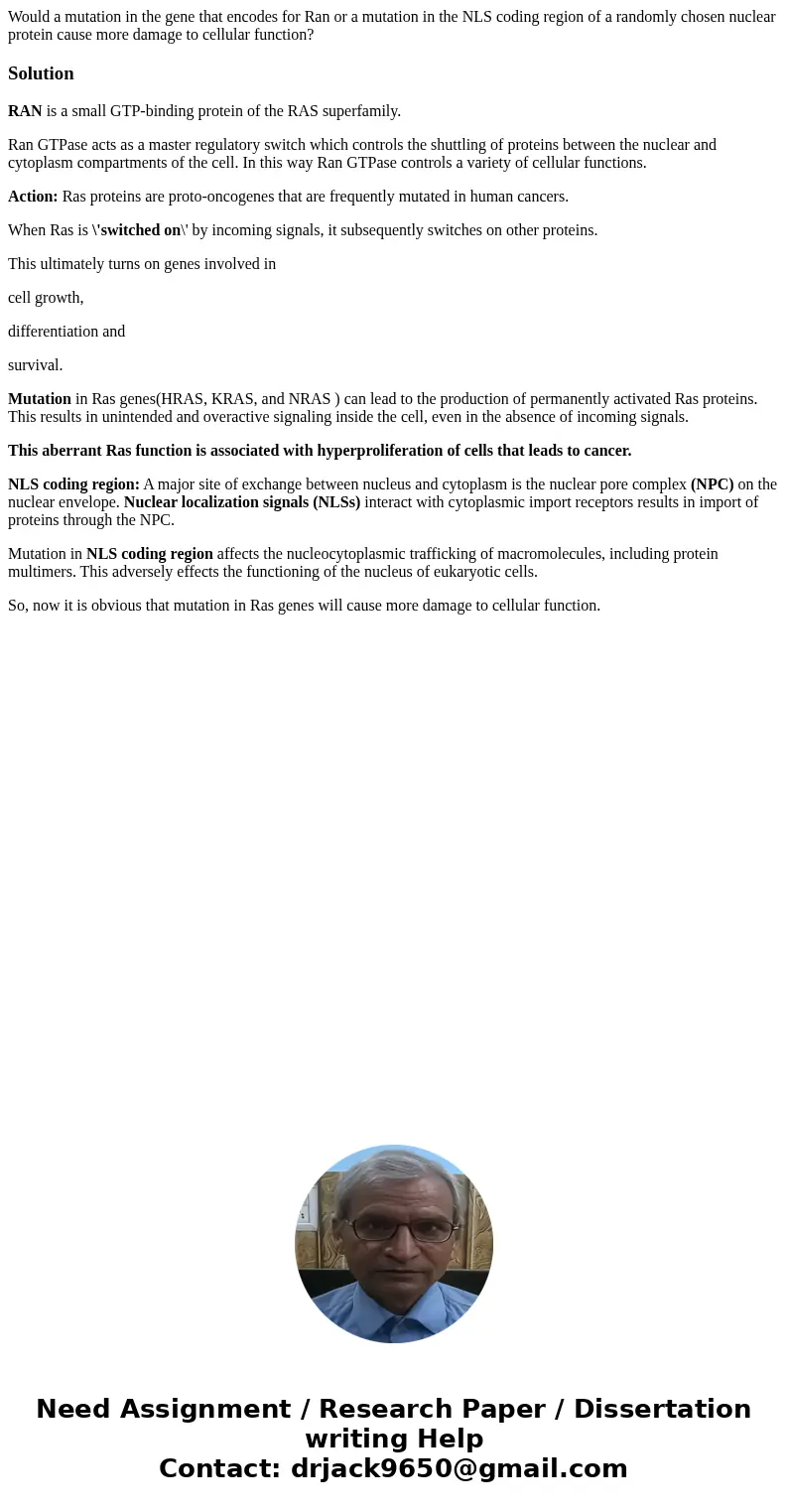Would a mutation in the gene that encodes for Ran or a mutat
Would a mutation in the gene that encodes for Ran or a mutation in the NLS coding region of a randomly chosen nuclear protein cause more damage to cellular function?
Solution
RAN is a small GTP-binding protein of the RAS superfamily.
Ran GTPase acts as a master regulatory switch which controls the shuttling of proteins between the nuclear and cytoplasm compartments of the cell. In this way Ran GTPase controls a variety of cellular functions.
Action: Ras proteins are proto-oncogenes that are frequently mutated in human cancers.
When Ras is \'switched on\' by incoming signals, it subsequently switches on other proteins.
This ultimately turns on genes involved in
cell growth,
differentiation and
survival.
Mutation in Ras genes(HRAS, KRAS, and NRAS ) can lead to the production of permanently activated Ras proteins. This results in unintended and overactive signaling inside the cell, even in the absence of incoming signals.
This aberrant Ras function is associated with hyperproliferation of cells that leads to cancer.
NLS coding region: A major site of exchange between nucleus and cytoplasm is the nuclear pore complex (NPC) on the nuclear envelope. Nuclear localization signals (NLSs) interact with cytoplasmic import receptors results in import of proteins through the NPC.
Mutation in NLS coding region affects the nucleocytoplasmic trafficking of macromolecules, including protein multimers. This adversely effects the functioning of the nucleus of eukaryotic cells.
So, now it is obvious that mutation in Ras genes will cause more damage to cellular function.

 Homework Sourse
Homework Sourse